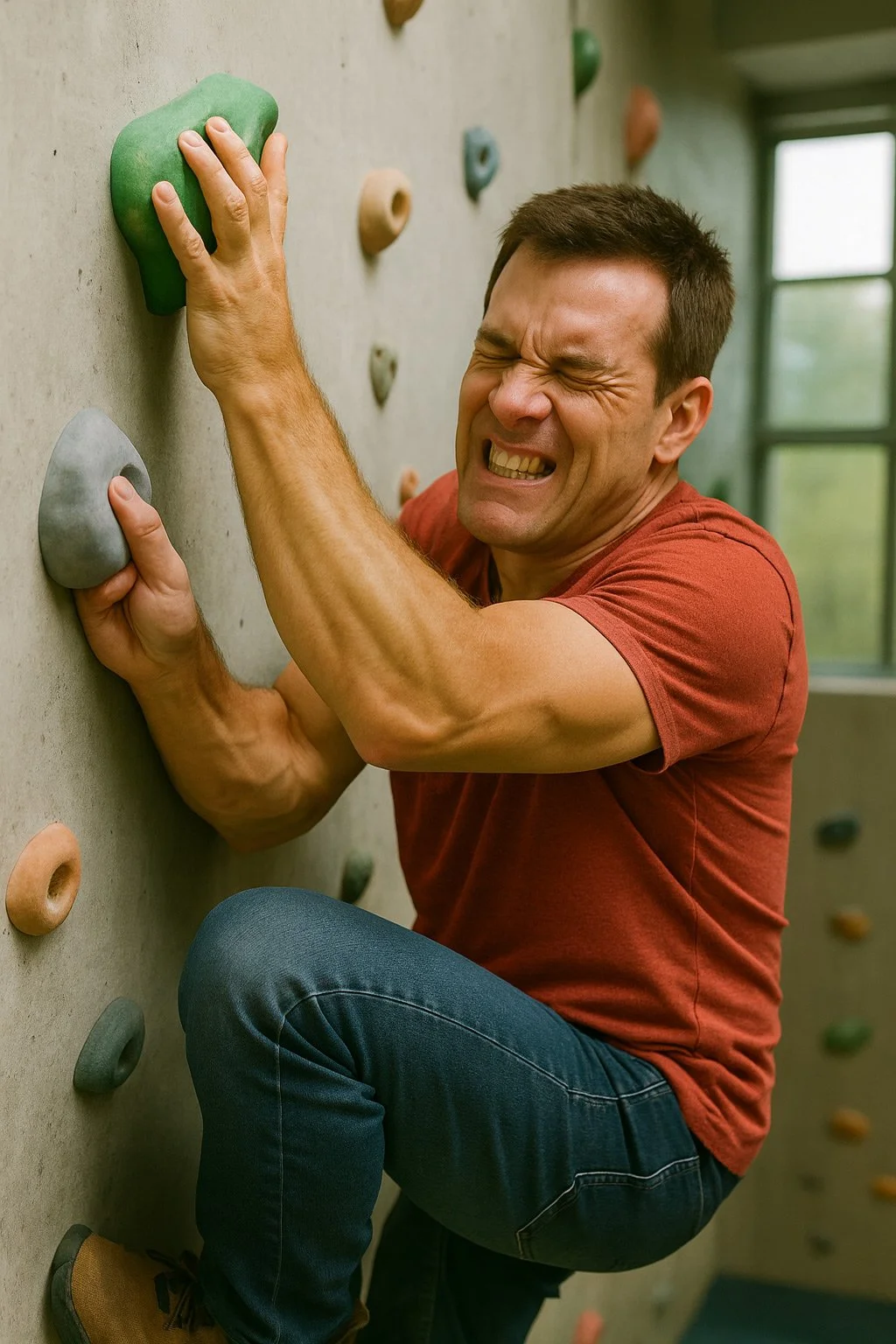Are You Growing or Withering? The Lens You Use to View Your Health Matters
There are countless ways to view your current state of health—or illness.
Some people define it by your ability to work.
Others see it in your capacity to play sports or recover from injury.
Some reduce it to a diagnosis (my least favorite).
Family and friends may judge it based on your energy, presence, or how well you engage as a parent, child, or friend.
Each of these lenses has merit, but they often miss the bigger picture: your health is not just a static condition—it's an ongoing expression of your ability to adapt, grow, and function in the world.
A Common Ground: Adaptation as the Core of Health
Rather than getting lost in fragmented perspectives, it may be more useful to focus on the common ground: your body’s ability to adapt and your mind’s willingness to grow. That, in essence, is what determines your healthspan—how long you live with energy, purpose, and resilience.
The story of your current body didn’t start yesterday. It’s been shaped over thousands of years. Whether you believe we were created or evolved (or both), we all share a long history of survival. Our ancestors developed certain abilities that helped them thrive:
The ability to feel hunger—and solve it.
The ability to identify threats—and respond to them.
The ability to cooperate, form bonds, and reproduce.
These weren’t just traits for surviving—they were the foundation for thriving. We spread to every corner of the planet because of these adaptive skills. And here’s the truth: adaptation hasn’t stopped.
We are still evolving—physically, mentally, and emotionally. The question is, in what direction are you evolving?
Are You Coasting, or Are You Challenging Yourself?
Have you become so comfortable that you’ve stopped challenging your body and mind to grow?
Let’s get honest:
Do you often feel tired, sick, or fragile?
Are you aging intentionally—or just aging?
Do you see challenges as growth opportunities—or as threats?
Are you scared of discomfort, of risk, of death?
Or:
Are you seeking ways to stretch yourself, to push limits, to adapt and thrive?
Are you resilient? Are you malleable?
Are you training your body and your mind to handle more—instead of less?
The Myth of Inevitable Decay
One common narrative is that we’re born in a state of perfection and decline steadily after some “prime” period. Psychologists might call this your “vitality bubble.” Once it bursts, the rest is slow deterioration—until we return to the dust we came from.
But what if that narrative is flawed? What if your body and brain are less like machines that wear out, and more like ecosystems that respond to inputs?
Because that’s exactly what the science says.
You Are the Sum of Your Exposures
If you feed your body with real, nourishing food—it becomes stronger.
If you challenge your brain with languages, music, and puzzles—it becomes sharper.
If you engage socially and pursue purpose—it becomes more joyful.
On the other hand, if you feed yourself a steady diet of processed food, negative stress, and passive entertainment… it shows. New studies have revealed brain shrinkage in participants who reduce the challenges in their lives (like excessive social media use).
You may rationalize it: “My doctor says I’m average.”
But average today means chronically inflamed, overweight, medicated, and mentally burned out.
You trade movement for convenience. Curiosity for routine. Passion for tolerance.
And then you wonder why you feel old.
Don't Play Yourself
In 1990, Ice-T released a song titled “You Played Yourself.” It was prophetic and can be used to view the irony of our increasingly comfortable life weakening us and speeding up our aging.
In the pursuit of comfort, you played yourself.
Many people are playing themselves—choosing the easy path, waiting for illness, and calling it normal aging. But what if the path to thriving is right in front of you?
Science Is Catching Up to The Wisdom of our Grandparents
Your grandparents probably told you:
“If you don’t use it, you’ll lose it.”
“What doesn’t kill you makes you stronger.”
“When life gives you lemons, make lemonade.”
These aren’t just clichés. They’re time-tested truths—now backed by research.
Adaptation requires stressors—not chronic distress, but intentional challenge:
Lift heavy things → gain strength.
Get cold or hot → build metabolic flexibility.
Fast occasionally → improve insulin sensitivity.
Face your fears → build grit.
In simple terms: growth requires effort.
Your Body Is Always Adapting—to Something
Every moment, your body is adapting—to what you eat, how you move, what you think, and how you sleep. The only question is:
Are you adapting toward health or away from it?
In the Western world, many of us are adapting toward comfort—and decay. We’re:
Sitting too much.
Eating too much.
Stressing too much.
Moving too little.
Sleeping too little.
Growing too little.
And then we call it “normal.”
My viewpoint is that this process is typical, not normal. Typical is what we see often, normal is what we are capable of and should expect.
Thrive by Choosing Challenge
Here’s the good news: adaptation works in both directions. You can change course. Starting today. And it doesn’t require perfection. Just consistency.
If you:
Rest deeply,
Eat well,
Move often,
Stay socially connected,
And consistently challenge yourself—
You will become more robust. More resilient. More alive.
Final Reflection
You are not just a body. You are a dynamic system constantly adapting.
So ask yourself:
Is my day structured to help me grow or decay?
Am I investing in resilience—or surrendering to entropy?
Am I thriving—or just existing?
You don’t need a diagnosis to make a change. You need a decision.
Your choices define you. Make them count. I understand that this post may make you feel uncomfortable. Embrace that this discomfort will help you grow and thrive.
Sorry, not sorry.




